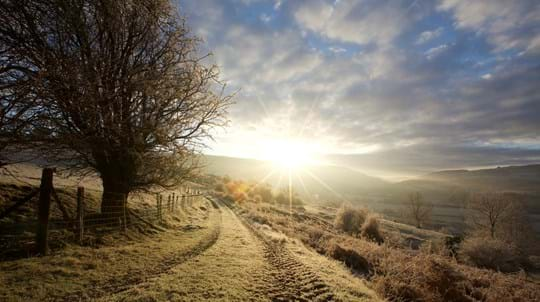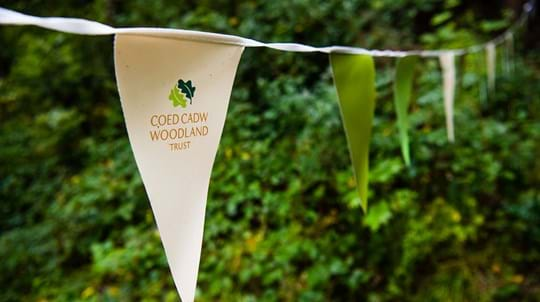
Protecting trees and woods
Agroforestry in Wales
Hedges and Edges, a form of agroforestry, could help tackle the biodiversity and climate crisis if adopted by Wales' future sustainable farming scheme.
Viewing in: English
We have a huge opportunity to change the way we manage our land in Wales through a new Sustainable Farming Scheme (SFS). We’re calling for support to help our farmers put sustainable food, healthy habitats and the functioning of our ecosystems first. We can help our farmers, communities and culture to thrive by ensuring Wales is tackling the nature and climate emergencies now, both here and abroad.
Trees, hedges and woodlands are vital to delivering many of the scheme’s desired outcomes. Trees, particularly native species, are naturally vital to the farm business and to the survival and recovery of wildlife. They are a natural resource with vast benefits for farm businesses, reducing dependence on inputs, mitigating extreme weather, helping wildlife recovery and boosting community wellbeing. That’s why we want to see Our Ten Asks for Trees on Farms included in the new scheme.
Encourage landowners to increase tree cover by:
We invite the public to join our campaign to ask that the Welsh Government deliver these ten asks within the new Sustainable Farming Scheme.

Protecting trees and woods
Hedges and Edges, a form of agroforestry, could help tackle the biodiversity and climate crisis if adopted by Wales' future sustainable farming scheme.

About us
We're standing up for trees in Wales and demanding better protection for our natural heritage.